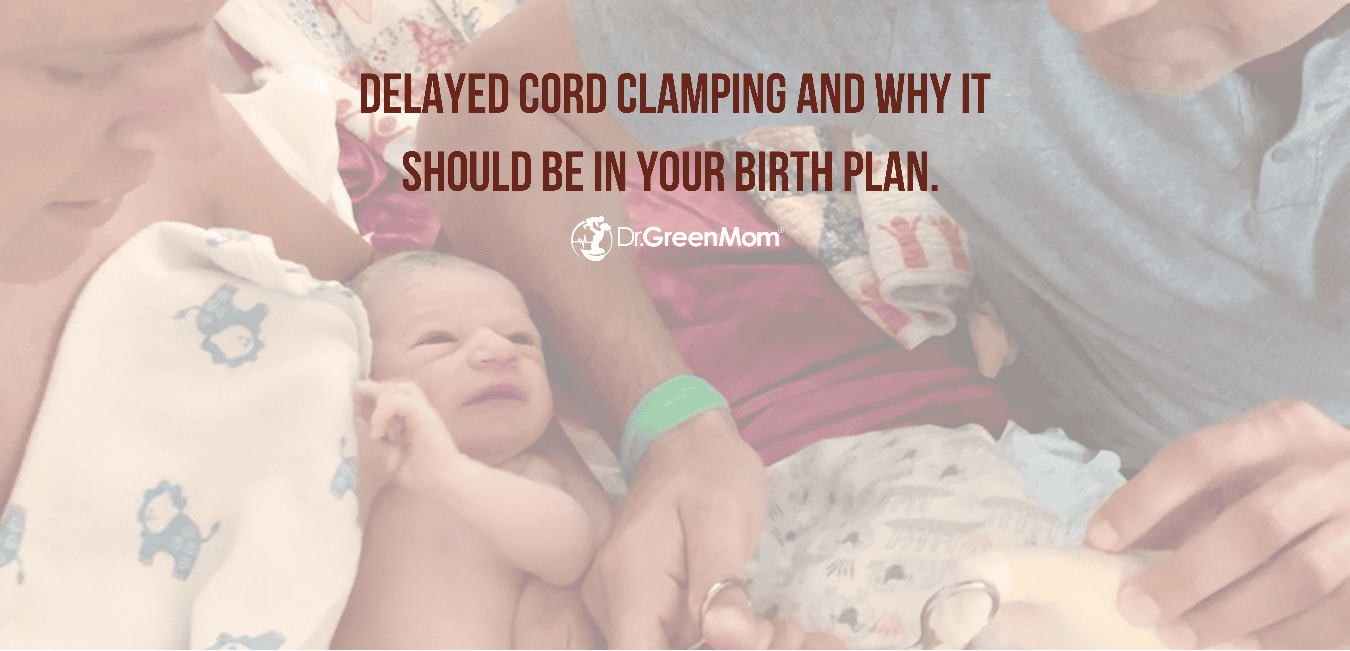It can be confusing to hear that aspirin is generally on the “no list” during pregnancy, yet low-dose aspirin is sometimes recommended for daily use during pregnancy by health professionals. While it is true that aspirin is generally not recommended for pain relief during pregnancy, low-dose aspirin is an exception that healthcare providers may suggest for some pregnant individuals, particularly to help prevent preeclampsia. In this article, we’ll discuss the potential benefits and risks as well as some situations where low-dose aspirin may be appropriate as part of a pregnancy care plan.
What Is Baby Aspirin, and Why Is It Used During Pregnancy?
“Baby aspirin” is a lower dose of aspirin (or acetylsalicylic acid) — typically 81 to 162 mg compared to the usual adult dose of 325 to 650 mg (1). Unlike higher doses used for pain relief, which are generally avoided during pregnancy, low-dose aspirin has a gentler effect on the body and it may help reduce the risk of certain pregnancy complications, particularly in individuals who have experienced recurrent pregnancy loss or are at a higher risk for preeclampsia, preterm birth, or blood clotting issues (2,3).
Note that regularly dosed aspirin is not safe during pregnancy. If you are looking for information on pain relief during pregnancy, see: Herbs For Pain Relief In Pregnancy & Lactation and Are Over-The-Counter Painkillers Safe?
How Does Low-Dose Aspirin Work?
Low-dose aspirin is primarily used during pregnancy to reduce the risk of pre-eclampsia (3), a condition marked by high blood pressure and protein in the urine that can lead to serious complications for mother and baby. Low-dose aspirin may help reduce the risk of developing high blood pressure and pre-eclampsia during pregnancy. It keeps blood platelets (small cells that help form clots) from clumping together as easily, which improves blood flow. It also relaxes blood vessels slightly and reduces inflammation, making it easier for blood to circulate (4).
Potential Benefits of Low-Dose Aspirin in Pregnancy
Low-dose aspirin provides several potential benefits for high-risk pregnancies:
- Prevention of Preeclampsia: Many health organizations, including the American College of Obstetricians and Gynecologists (ACOG), recommend low-dose aspirin for those at high risk for preeclampsia (5). Studies show that when baby aspirin is started between 12 and 16 weeks of pregnancy, it can reduce the risk of preeclampsia (6).
- Reduced Risk of Preterm Birth: Research shows that low-dose aspirin may lower the chance of preterm birth in some high-risk pregnancies (7).
- Reduced Risk of Recurrent Pregnancy Loss: Studies are exploring aspirin’s potential to reduce the risk of recurrent pregnancy loss due to blood clotting disorders (8).
Potential Risks of Low-Dose Aspirin in Pregnancy
Though generally considered safe when used during pregnancy under a doctor’s guidance, low-dose aspirin’s blood-thinning properties could increase bleeding risks, particularly during delivery or postpartum (9). For this reason, some doctors may recommend their patients stop taking low dose aspirin by 36 weeks of pregnancy. Note that the American College of Obstetricians and Gynecologists recommends baby aspirin be continued until birth (10).
Research shows that acetylsalicylic acid (aspirin) crosses the placental barrier, meaning that the baby receives some exposure. However, studies indicate that there are no apparent negative effects in infants exposed to low-dose aspirin during pregnancy, and there may be some minor positive effects of low-dose aspirin administered during pregnancy on post-neonatal mortality and motor development up to 18 months of age (11).
When Is Low-Dose Aspirin Recommended in Pregnancy?
When it comes to taking baby aspirin in pregnancy, the American College of Obstetricians and Gynecologists (ACOG) makes the following recommendations as of 2018 (10):
- Low-dose aspirin prophylaxis is recommended in women at high risk of preeclampsia and should be initiated between 12 weeks and 28 weeks of gestation (optimally before 16 weeks) and continued daily until delivery.
- Low-dose aspirin prophylaxis should be considered for women with more than one of several moderate risk factors for preeclampsia.
High Risk Factors for Preeclampsia
- History of preeclampsia in a prior pregnancy
- Pregnant with multiples
- Chronic hypertension
- Kidney disease
- Diabetes mellitus
- Autoimmune disorders, like lupus (SLE)
- Multiple moderate risk factors
Moderate Risk Factors for Preeclampsia
- First pregnancy
- Pregnancy occurring more than 10 years after a previous pregnancy
- Body Mass Index (BMI) over 30
- Family history of preeclampsia (mother or sister)
- Age 35 or older
- Complications in prior pregnancies, like low birth weight
- Conception through IVF
- Black race
- Low socioeconomic status
Do not self medicate with low-dose aspirin during pregnancy, even if you believe you meet the ACOG criteria, and always speak to a healthcare provider before starting low-dose aspirin, as it is not suitable for everyone.
Can Preeclampsia Be Prevented Naturally?
There is no surefire way to prevent preeclampsia, and research shows that low-dose aspirin is likely the best option for reducing the risk amongst higher risk individuals (10). However, there are some general lifestyle factors that may help support a healthy pregnancy:
Anti-Inflammatory Diet: Eating a nutrient-rich diet with plenty of fruits, vegetables, quality protein, whole grains, and healthy fats can support overall health and blood pressure levels.
Regular Physical Activity: If you are cleared to do so by your doctor, engaging in safe, regular exercise — like walking, swimming, or prenatal yoga — can support healthy blood pressure levels.
Stress Management: Chronic stress can impact blood pressure, so practices like deep breathing, meditation, and certain pregnancy safe herbal formulations can help with relaxation and stress reduction.
Adequate Hydration: Drinking enough is important for maintaining healthy blood volume and circulation, and during pregnancy our fluid needs increase by 8-16 oz per day! Try to limit sodas and sugary drinks and instead focus on quality water and herbal teas.
Sufficient Mineral Intake: Calcium, magnesium, and iodine are essential minerals for pregnancy. Calcium and magnesium specifically are minerals that may help regulate blood pressure, and low serum calcium and magnesium levels in pregnancy have been associated with the incidence of preeclampsia (12). Sufficient iodine intake is crucial for thyroid function, and mothers with preeclampsia often show lower iodine levels compared to mothers who are not preeclamptic (13). Supplementation with calcium, magnesium, and iodine can help support healthy levels of these minerals during pregnancy.
Omega-3 Fatty Acids: Omega-3s support a healthy anti-inflammatory response and may help support healthy blood pressure and circulation during pregnancy (14). Supplementation with omega-3 can help ensure sufficient intake.
Limit Caffeine: Limiting caffeine intake is recommended, as excessive caffeine can contribute to higher blood pressure (15). Most guidelines suggest keeping caffeine intake below 200 mg per day during pregnancy.
To learn more about how to support your health during pregnancy, read these articles: Natural Treatment Of GERD During Pregnancy, Natural Treatment For Group B Strep In Pregnancy, and Nutrient Deficiencies Associated With Morning Sickness
Summary
Low-dose aspirin is sometimes recommended during pregnancy, particularly for those at higher risk of complications like preeclampsia. Unlike higher doses, which are generally unsafe for pain relief in pregnancy, low-dose aspirin is generally considered to be low risk. Low-dose aspirin works to help prevent preeclampsia by supporting blood flow. Low-dose aspirin carries a minor risk of increased bleeding during delivery, but the increase is generally minor. An anti-inflammatory diet, moderate exercise, stress management, and other lifestyle practices can further support a healthy pregnancy. Always consult with a healthcare provider before taking low-dose aspirin in pregnancy.
References:
- Arif H, Aggarwal S. Salicylic Acid (Aspirin) [Updated 2023 Jul 5]. In: StatPearls [Internet]. Treasure Island (FL): StatPearls Publishing; 2024 Jan-. https://www.ncbi.nlm.nih.gov/books/NBK519032/
- Atallah A, Lecarpentier E, Goffinet F, Doret-Dion M, Gaucherand P, Tsatsaris V. (2017). Aspirin for Prevention of Preeclampsia. Drugs. 2017 Nov;77(17):1819-1831. doi: 10.1007/s40265-017-0823-0. PMID: 29039130; PMCID: PMC5681618.
- Organization of Teratology Information Specialists (OTIS). (2024). Mother To Baby: Fact Sheets. Low Dose Aspirin. https://www.ncbi.nlm.nih.gov/books/NBK582805/
- Henderson JT, Vesco KK, Senger CA, et al. (2021). Aspirin Use to Prevent Preeclampsia and Related Morbidity and Mortality [Internet]. Rockville (MD): Agency for Healthcare Research and Quality (US); 2021 Sep. (Evidence Synthesis, No. 205.) Chapter 1, Introduction. https://www.ncbi.nlm.nih.gov/books/NBK574452/
- ACOG. (2018, July). Low-Dose Aspirin Use During Pregnancy. Www.acog.org. https://www.acog.org/clinical/clinical-guidance/committee-opinion/articles/2018/07/low-dose-aspirin-use-during-pregnancy
- Ren Y, Zhao Y, Yang X, Shen C, Luo H. (2023). Application of low dose aspirin in pre-eclampsia. Front Med (Lausanne). 2023 Mar 8;10:1111371. doi: 10.3389/fmed.2023.1111371. PMID: 36968826; PMCID: PMC10030847.
- Hoffman MK, Goudar SS, Kodkany BS, Metgud M, Somannavar M, Okitawutshu J, Lokangaka A, Tshefu A, Bose CL, Mwapule A, Mwenechanya M, Chomba E, Carlo WA, Chicuy J, Figueroa L, Garces A, Krebs NF, Jessani S, Zehra F, Saleem S, Goldenberg RL, Kurhe K, Das P, Patel A, Hibberd PL, Achieng E, Nyongesa P, Esamai F, Liechty EA, Goco N, Hemingway-Foday J, Moore J, Nolen TL, McClure EM, Koso-Thomas M, Miodovnik M, Silver R, Derman RJ; ASPIRIN Study Group. (2020). Low-dose aspirin for the prevention of preterm delivery in nulliparous women with a singleton pregnancy (ASPIRIN): a randomised, double-blind, placebo-controlled trial. Lancet. 2020 Jan 25;395(10220):285-293. doi: 10.1016/S0140-6736(19)32973-3. Erratum in: Lancet. 2020 Mar 21;395(10228):e53. doi: 10.1016/S0140-6736(20)30569-9. PMID: 31982074; PMCID: PMC7168353.
- Hamulyák EN, Scheres LJ, Marijnen MC, Goddijn M, Middeldorp S. (2020). Aspirin or heparin or both for improving pregnancy outcomes in women with persistent antiphospholipid antibodies and recurrent pregnancy loss. Cochrane Database Syst Rev. 2020 May 2;5(5):CD012852. doi: 10.1002/14651858.CD012852.pub2. PMID: 32358837; PMCID: PMC7195627.
- Jiang Y, Chen Z, Chen Y, Wei L, Gao P, Zhang J, Zhou X, Zhu S, Zhang H, Du Y, Fang C, Su R, Wang S, Yu J, He M, Ding W, Feng L. Low-dose aspirin use during pregnancy may be a potential risk for postpartum hemorrhage and increased blood loss: a systematic review and meta-analysis. Am J Obstet Gynecol MFM. 2023 Apr;5(4):100878. doi: 10.1016/j.ajogmf.2023.100878. Epub 2023 Jan 25. PMID: 36706919.
- ACOG. (2018, July). Low-Dose Aspirin Use During Pregnancy. Www.acog.org. https://www.acog.org/clinical/clinical-guidance/committee-opinion/articles/2018/07/low-dose-aspirin-use-during-pregnancy
- Landman AEJMC, van Limburg Stirum EVJ, de Boer MA, van ’t Hooft J, Ket JCF, Leemhuis AG, Finken MJJ, Oudijk MA, & Painter RC (2021). Long-term health and neurodevelopment in children after antenatal exposure to low-dose aspirin for the prevention of preeclampsia and fetal growth restriction: A systematic review of randomized controlled trials. European Journal of Obstetrics & Gynecology and Reproductive Biology, 267, 213–220. https://doi.org/10.1016/j.ejogrb.2021.11.010
- Winarno GNA, Pribadi A, Maruli HJ, Achmad ED, Anwar R, Mose JC, Nisa AS, Trianasari N. Ratio of Serum Calcium to Magnesium Levels on Pregnancy with and without Preeclampsia. Med Sci Monit. 2021 Sep 12;27:e932032. doi: 10.12659/MSM.932032. PMID: 34510157; PMCID: PMC8444707.
- Businge CB, Usenbo A, Longo-Mbenza B, & Kengne AP. (2021). Insufficient iodine nutrition status and the risk of pre-eclampsia: a systemic review and meta-analysis. BMJ Open. 2021 Feb 10;11(2):e043505. doi: 10.1136/bmjopen-2020-043505. PMID: 33568375; PMCID: PMC7878161.
- Burchakov DI, Kuznetsova IV, & Uspenskaya YB. (2017). Omega-3 Long-Chain Polyunsaturated Fatty Acids and Preeclampsia: Trials Say “No,” but Is It the Final Word? Nutrients. 2017 Dec 15;9(12):1364. doi: 10.3390/nu9121364. PMID: 29244779; PMCID: PMC5748814.
- Bakker R, Steegers EA, Raat H, Hofman A, & Jaddoe VW. (2011). Maternal caffeine intake, blood pressure, and the risk of hypertensive complications during pregnancy. The Generation R Study. Am J Hypertens. 2011 Apr;24(4):421-8. doi: 10.1038/ajh.2010.242. Epub 2010 Dec 16. PMID: 21164492.



3 Comments